There has been little public information released regarding the sexual assault case that occurred over a week ago, raising questions about compliance with the Clery Act.
Signed into law by President George H. W. Bush in 1990, this federal statute “requires colleges and universities to report campus crime data and publicly outline the policies and procedures they have put into place to improve campus safety”, as detailed on the Clery Center’s website.
The act aims to keep post-secondary institutions in the United States informed about criminal activity on or near their campuses. It also mandates the issuance of campus-wide alerts for crimes that pose a serious or ongoing threat to the community- though this decision rests with university officials.
“[In accordance with the Clery Act], Norwich University issues timely warnings for incidents reported that pose a serious or ongoing threat to the campus community. While sexual assaults are very serious, there is normally no serious or ongoing threat to the campus community” says Pamela Koppelmann, the Norwich University Chief Institutional Compliance Officer.
This claim is substantiated in a document titled “Timely Warnings and Emergency Notifications: Separate and Distinct Requirements” located on the Clery Center website. The document states that “when a crime covered by the Clery Act occurs, campus officials are required to evaluate if there is a serious or ongoing threat to the campus community to determine if a timely warning needs to be issued to all staff and students.”
The school has yet to issue a Clery Act alert to the Norwich community for this particular case; unlike with the April 6 sexual assault case where an alert was issued via the Public Safety Crime Logs shortly after the incident was reported to campus police that night.
Some institutions, however, advocate for broader transparency in notifying campus communities about criminal activity. The Student Press Law Center (SPLC), a nonprofit organization dedicated to defending student press rights, argues for a stricter interpretation of the Clery Act’s “timely warning” requirement.
In a Feb. 2020 article published by SPLC titled “Student media guide to the Clery Act”, the organization made it a point to say that “the purpose of the requirement [of a public alert] is to enable the campus community to protect itself. It can strongly be argued that any significant amount of time that passes between when a crime that could present an ongoing threat occurs and when the public is notified violates the law’s intent. Plainly, it would seem that a lapse of more than 24 hours would be unreasonable.”
The SPLC further states that alerts should include sufficient details, such as the nature of the crime, the time and location, and a description of any suspects, if available.
Given these concerns, it seems reasonable to assert that college students have a right to timely and comprehensive information about campus incidents. However, the balance between transparency and procedural complexity remains challenging. This issue echoes themes raised in a May 2 article by The Guidon titled “Lack of transparency clouds Norwich’s handling of sexual assault cases.”
The earlier article highlighted that Norwich University seems to have taken minimal action to enhance student safety following a sexual assault at the end of the Spring 2023 semester. Additionally, there appears to be a recurring pattern of such incidents occurring at the close of the semester.
According to an email from Dr. Karen Gaines, Norwich University’s Provost & Dean of Faculty, the university’s commitment to addressing this sexual assault pattern “extends beyond awareness, providing holistic support to students who may be facing challenges. The Care Team, composed of representatives from Student Affairs, Athletics, and Academic Affairs, offers individualized assistance and resources to students identified through our proactive monitoring program.”
Despite these efforts, this case marks the second publicized sexual assault incident reported by The Guidon within two years and the third occurring during the final week of a semester. This recurring pattern raises questions about its connection to the semester’s end or other underlying factors.
When asked about this pattern and if it has been identified or addressed by any relevant authorities, Koppelmann said in an email response to The Guidon that Norwich University “review[s] reports of sexual and gender-based misconduct from the previous academic year to subsequent years to analyze trends. This analysis will result in a final report to the campus community for all sexual and gender-based misconduct that will report any trend to the types of misconduct, resolution, etc. from the previous academic year”.
View the Norwich University 2023 Annual Security and Fire Safety Report here.

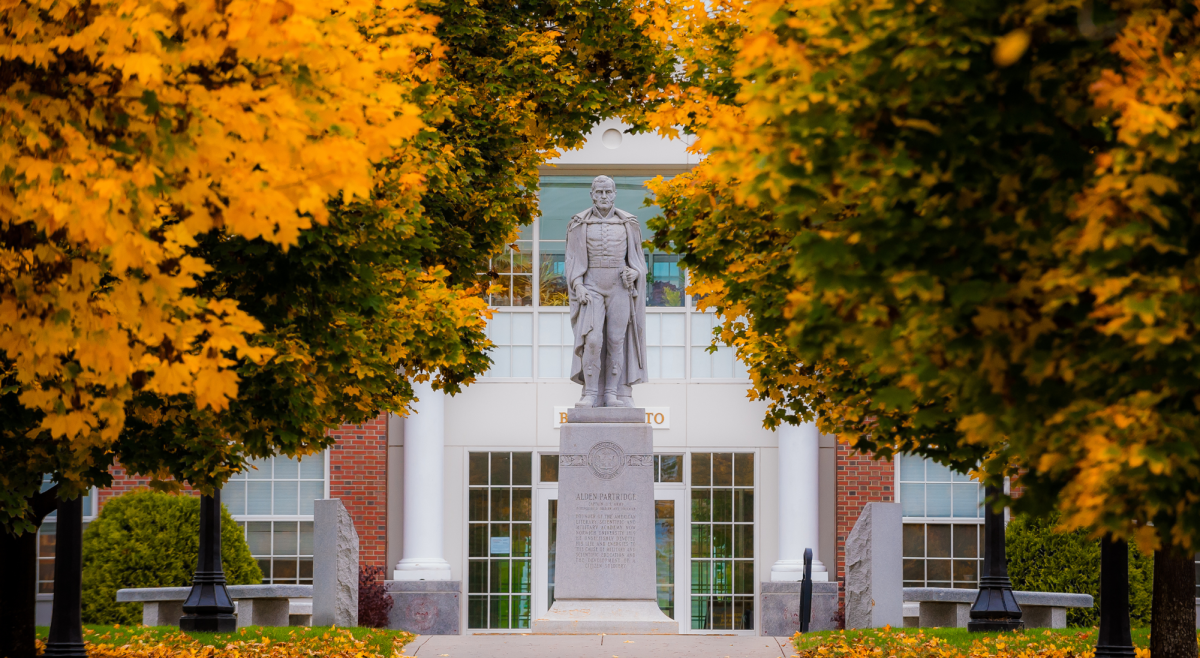








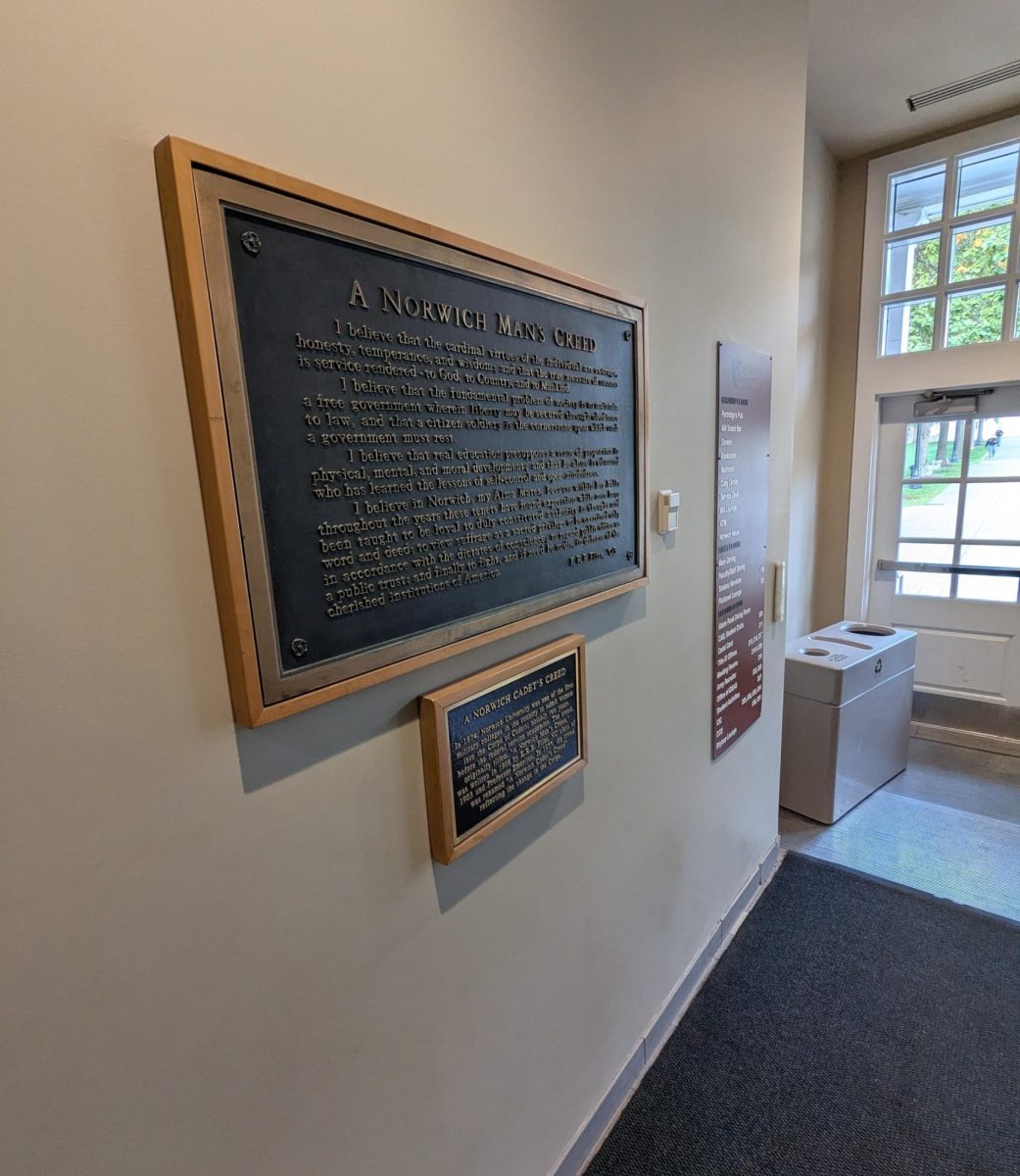

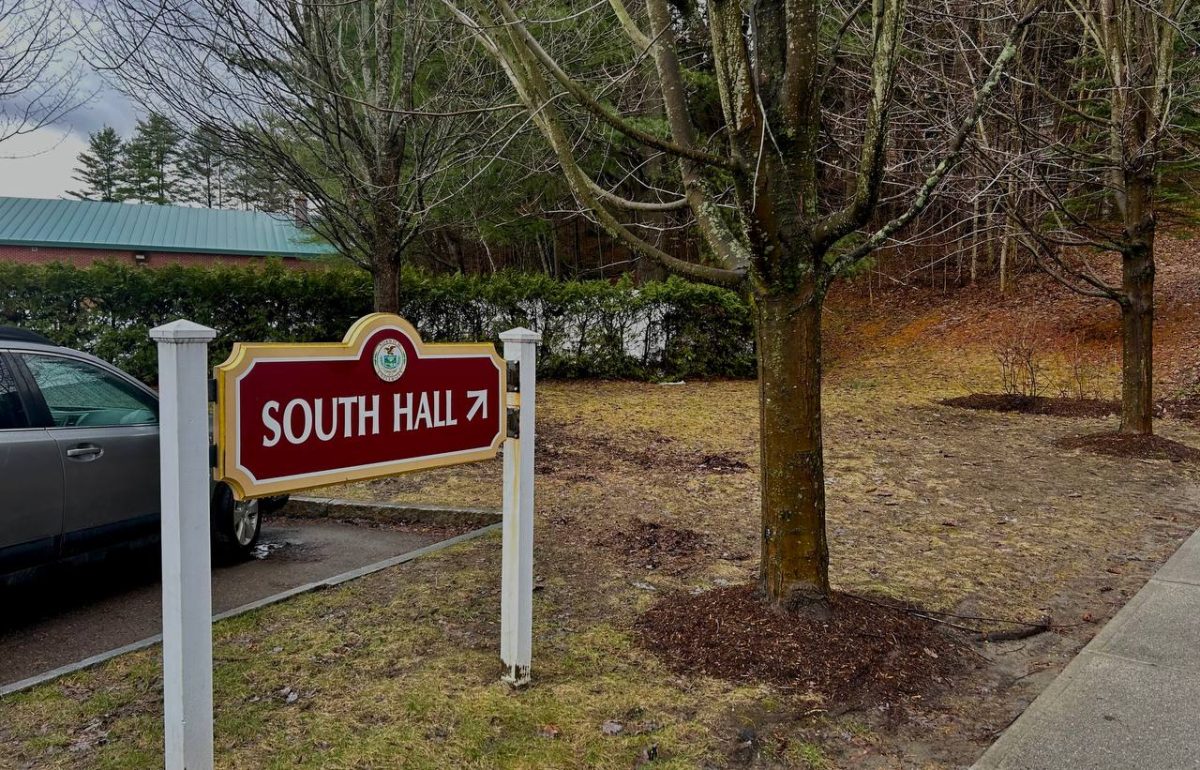
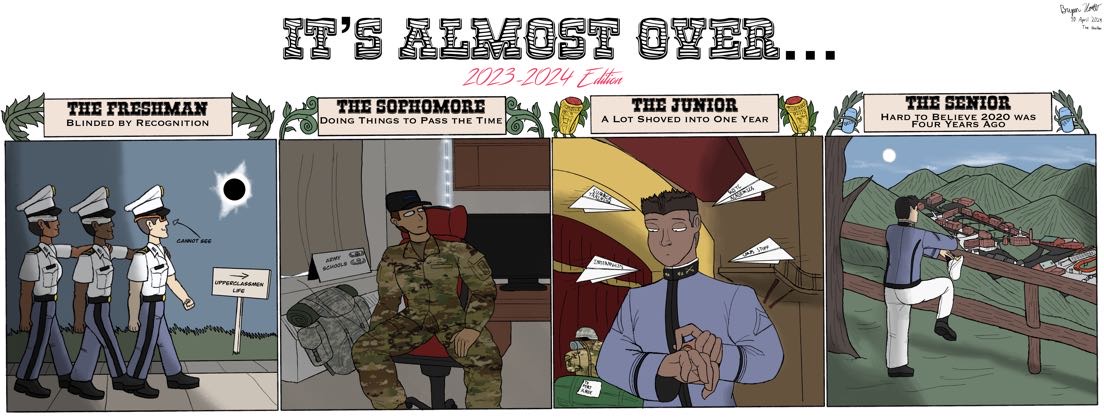
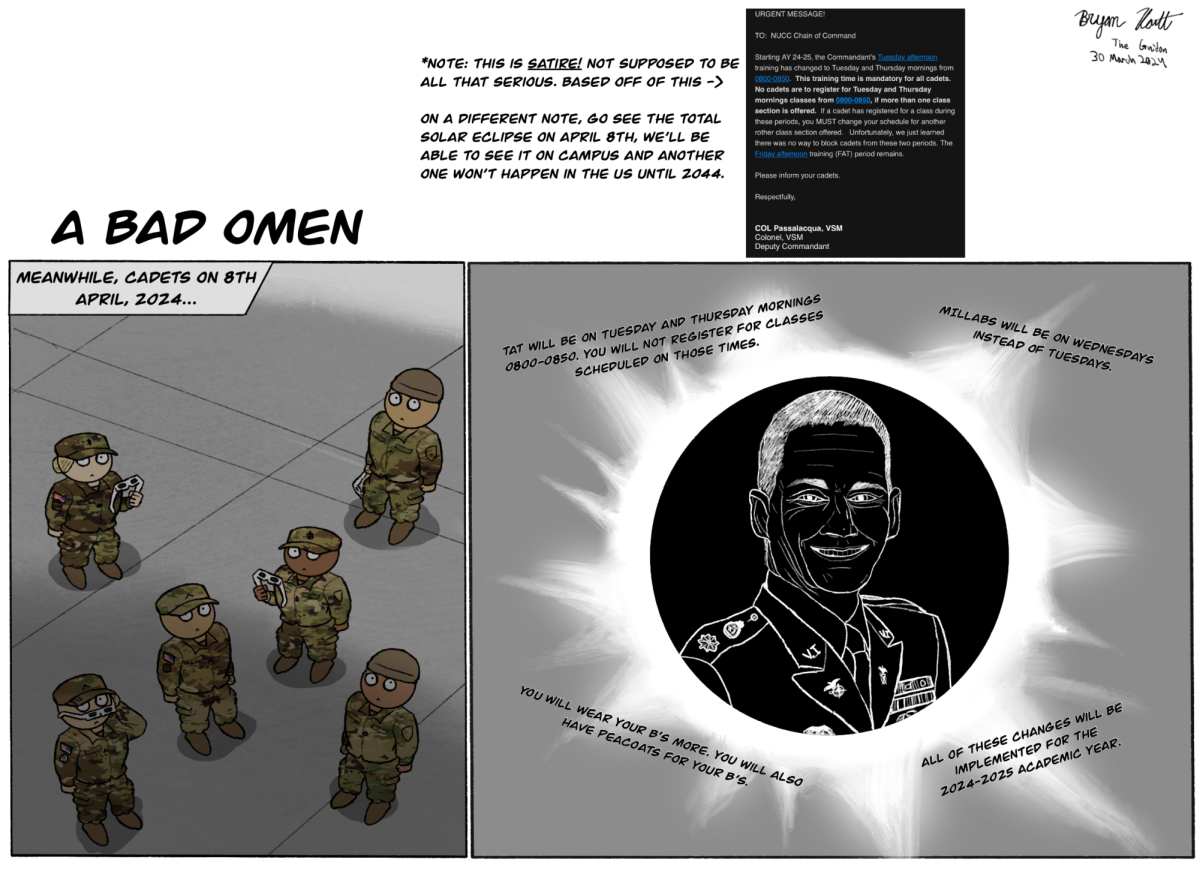






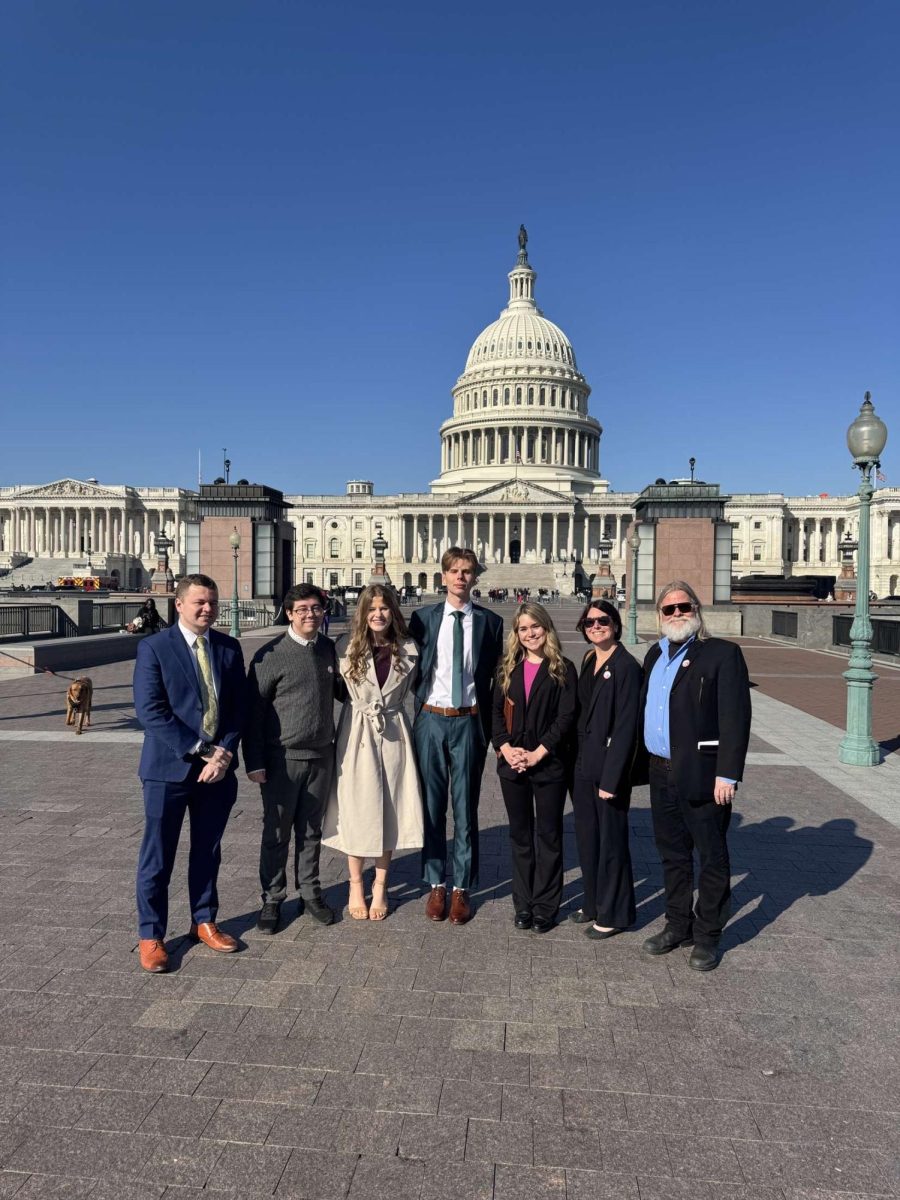


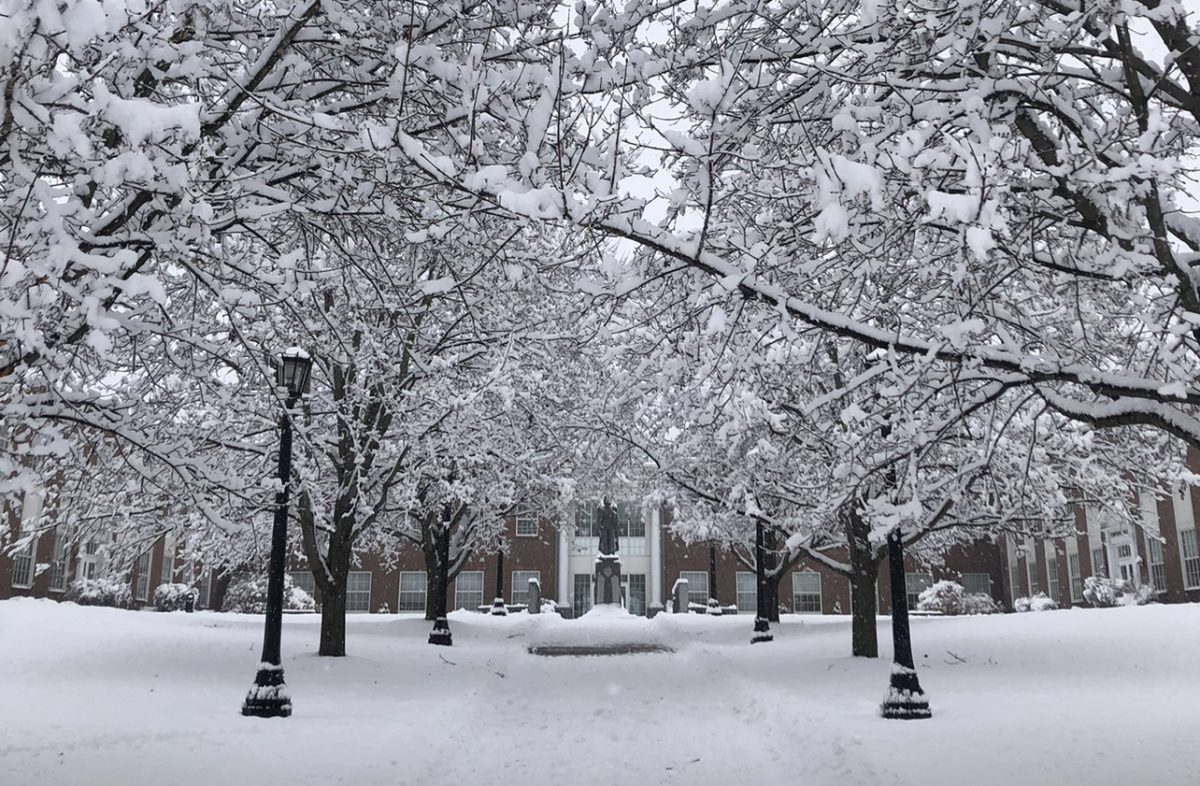

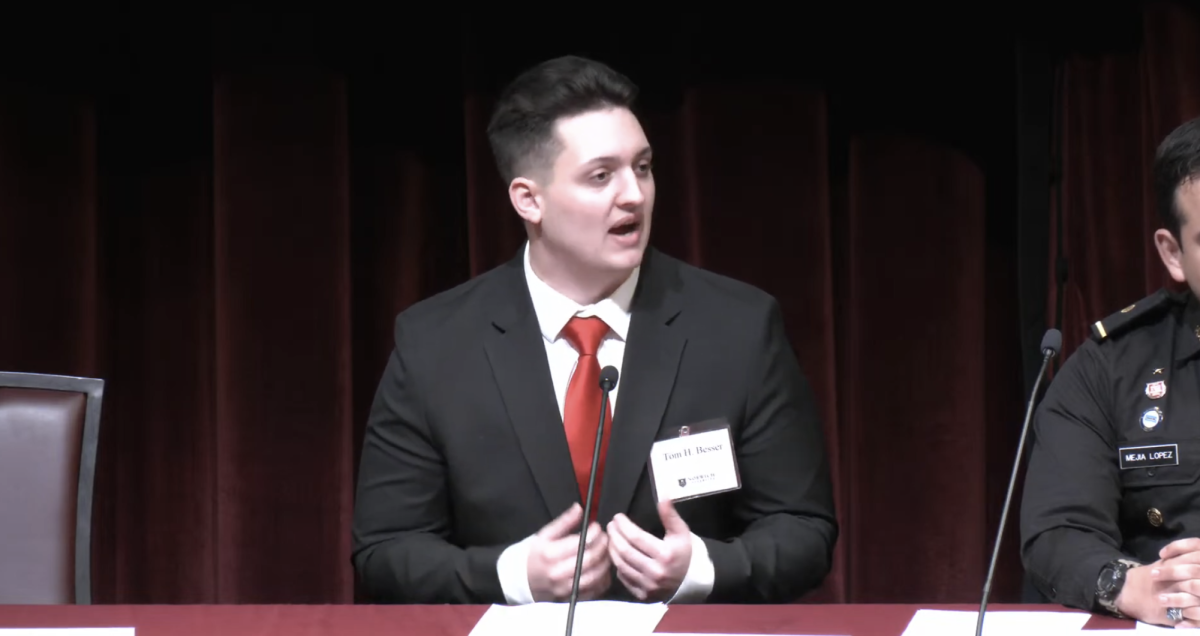


Anonymous • Jan 28, 2025 at 4:08 pm
Its crazy to think about all this when the accused keeps contacting the victim too and it’s all being reported. He’s been cited for the offense and he has broken the court’s conditions of release 3 times now. He has tried calling the victim, as well as texting the victims family discussing how he has nude photographs of the victim and implying they are on the internet. He also applied to the victim’s job without notifying HR/Management about the ongoing case. The school is still settling it as it has its investigation process to go through. It is unfortunate to see the school not deal with or handle these cases as quickly or efficiently as they should and its more unfortunate that the president gets displeased when these incidents are reported about. If people are upset that these incidents are being reported then something should be done to stop these incidents from occuring